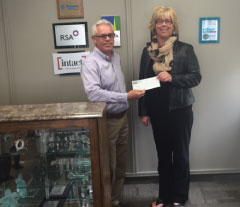
What is business insurance and who needs it?
Every business has unique requirements. Your commercial insurance should be designed to protect against the most prevalent risks to the assets and capital in your business. Your broker can help you itemize and quantify those risks, and determine the level of coverage you should consider. Risks include:
Property loss
Insurance against property damage or theft protects the physical assets that support your business including buildings, equipment, vehicle fleets and inventory, as well as intangible assets such as licenses, patents and accounts receivable. To arrange the right level of insurance, you must know your rights and obligations as an owner, tenant, leaseholder, landlord or mortgage holder. You must also take into account local bylaws on standards for physical repair and reconstruction.
Liability loss
Every business is exposed to liabilities and should be protected against the minor as well as the major ones including personal injury, product failures or negligence.
Personnel loss
Group health and benefits insurance can help to improve employee retention and well-being thereby reducing the cost of turnover and lost time.
Net income loss
Some businesses are exposed to specific perils that are beyond their control and that would cause critical damage to the viability of the business. For example, a food services operation might insure against a major electrical outage that would result in spoilage of their inventory.
Consider the underlying risk drivers in your business
An experienced commercial insurance broker can help you read the risks in your business, advise you on how to reduce some of the more manageable exposures and suggest an insurance mix that takes your risk tolerance and financial situation into account. The following are examples of common risk drivers
- Heavy reliance on limited sources of income
- Dependence on one or a few people to run the business
- Elaborate and specialized physical assets
- Extensive international operations
- Sensitivity to factors outside your control, such as weather and commodity prices
- Labour unrest
- High levels of inventory
- Large vehicle fleets
- Rudimentary workplace health and safety practices
- Dangerous materials handling
An ounce of prevention
Ask your broker about arranging a complete loss-prevention audit to identify possible hazards in your operations and to suggest improvements and optimum cover






